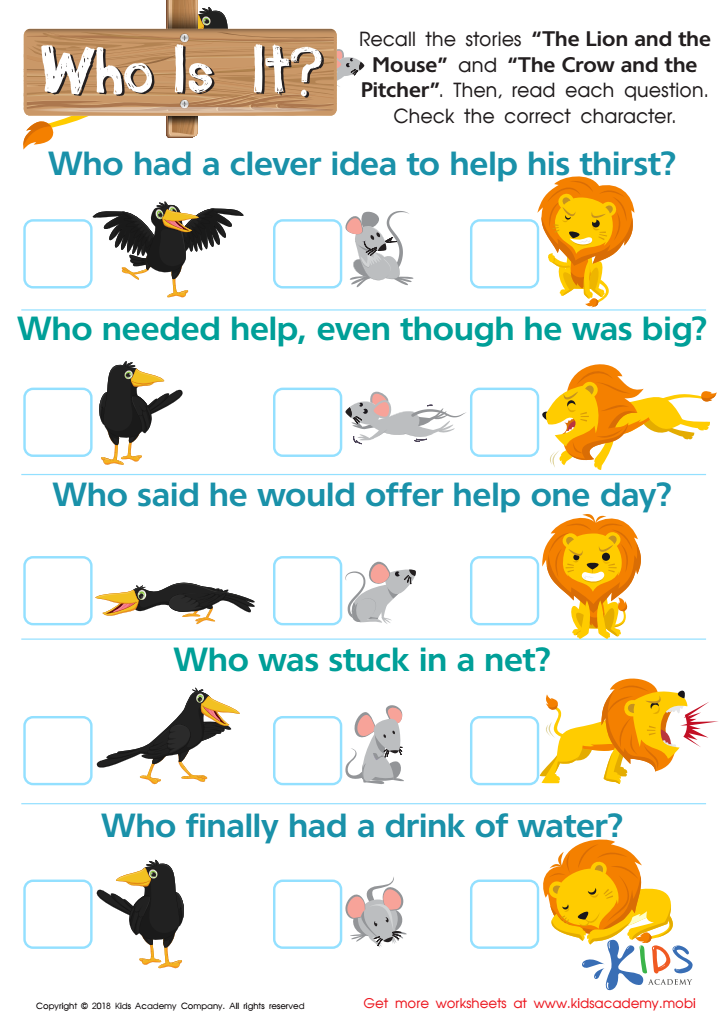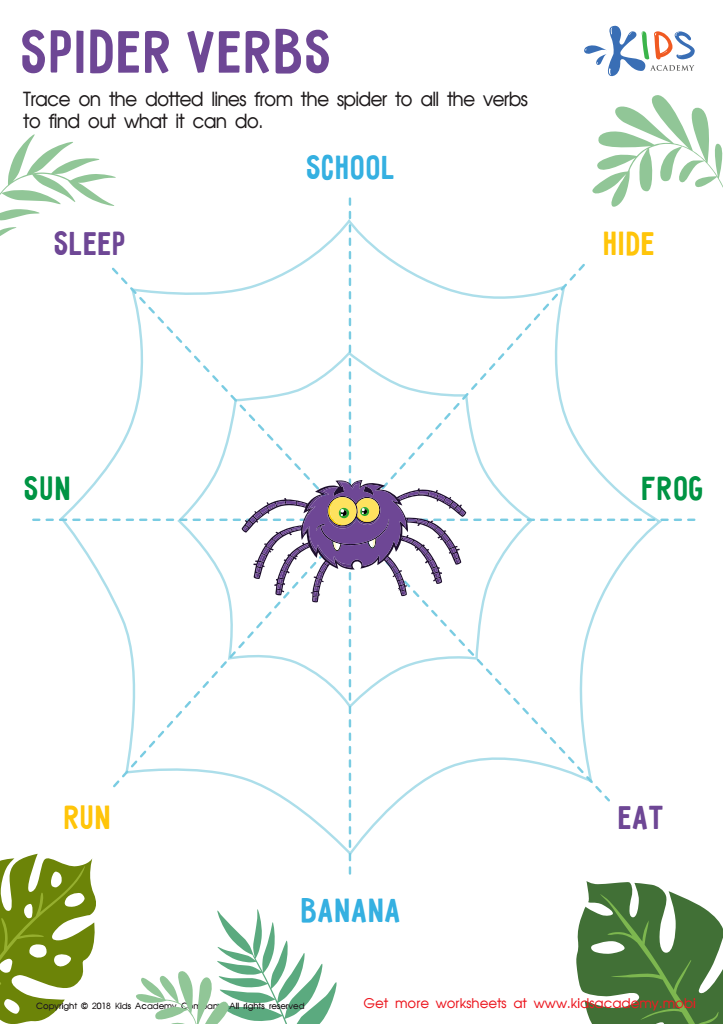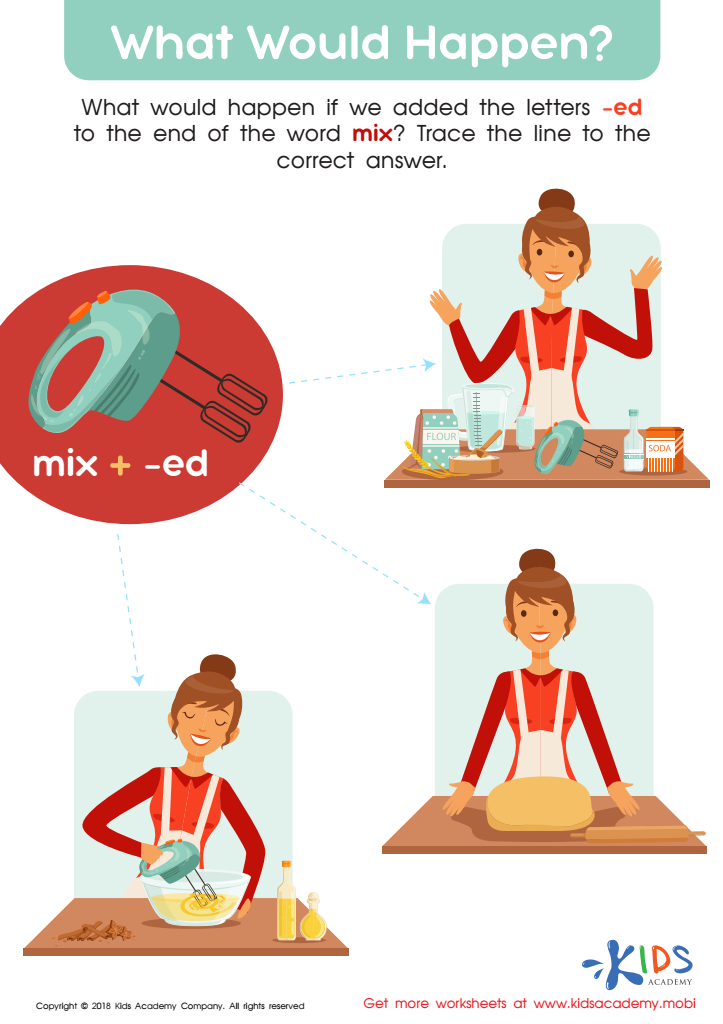Logical thinking Writing Worksheets for Ages 6-9
3 filtered results
-
From - To
Enhance your child's writing skills with our engaging Logical Thinking Writing Worksheets for Ages 6-9! These worksheets are specifically designed to stimulate critical thinking and problem-solving abilities, laying a solid foundation for effective written communication. Carefully crafted activities encourage kids to analyze scenarios, draw conclusions, and express their ideas cohesively. By integrating logical reasoning with writing practice, we foster creativity and boost confidence in young learners. Perfect for use at home or in the classroom, our worksheets empower children to think deeply while honing their writing skills. Explore our collection and watch your child's logical thinking flourish!


Who Is It? Worksheet


Spider Verbs Worksheet


What Would Happen? Worksheet
Logical thinking writing is a vital skill for children ages 6-9, as it lays the foundation for critical thinking and problem-solving abilities. At this stage, children begin to develop their reasoning skills, and encouraging logical writing helps them articulate their thoughts clearly and coherently. Parents and teachers should prioritize logical thinking writing because it not only enhances communication skills but also fosters creativity. When children engage in writing exercises that require logical reasoning, they learn to analyze situations, make connections, and draw conclusions, which are essential life skills.
Furthermore, logical thinking writing can greatly improve a child's understanding of complex subjects like math and science. By structuring their ideas logically, children become better equipped to tackle challenges in these areas. This writing practice also supports literacy development, as children learn to organize their thoughts and use appropriate vocabulary.
Moreover, nurturing logical thinking early on promotes independence and confidence in decision-making. When children can clearly express themselves and justify their reasoning, they become more engaged learners. Ultimately, fostering logical thinking writing not only aids academic success but also equips children with essential skills they will carry throughout their lives, making it a priority for educators and parents alike.
 Assign to My Students
Assign to My Students




.jpg)










